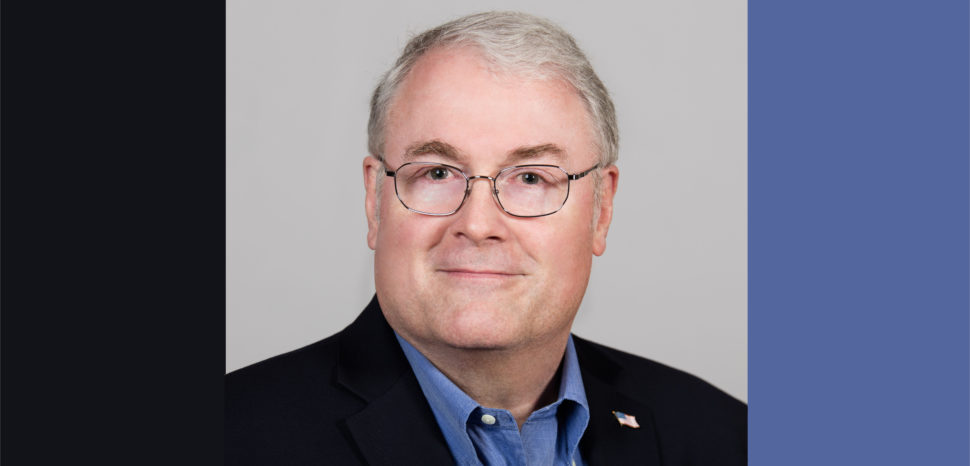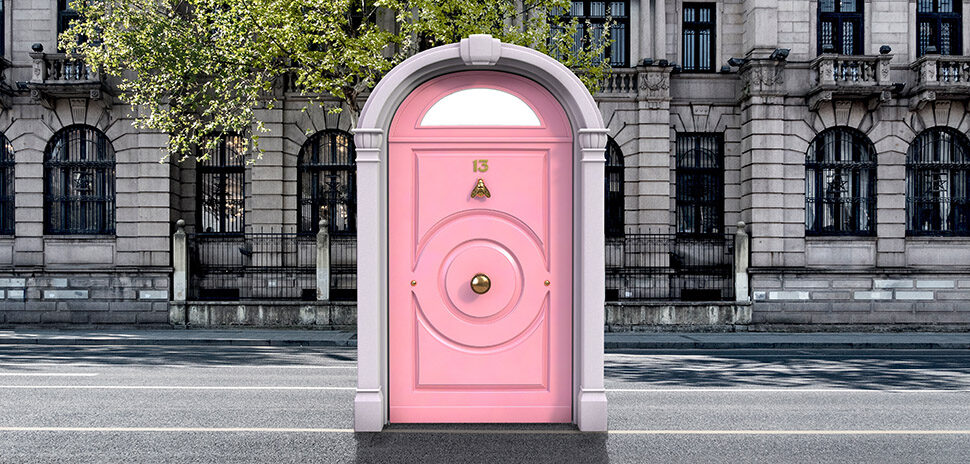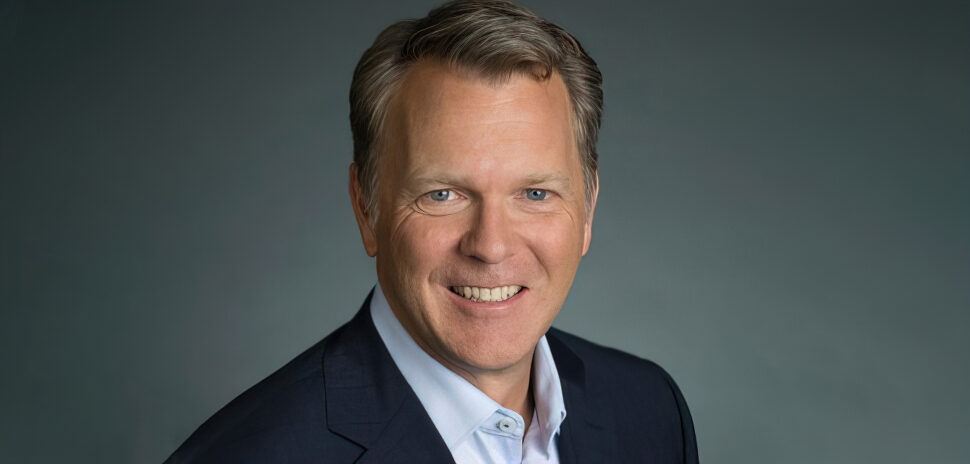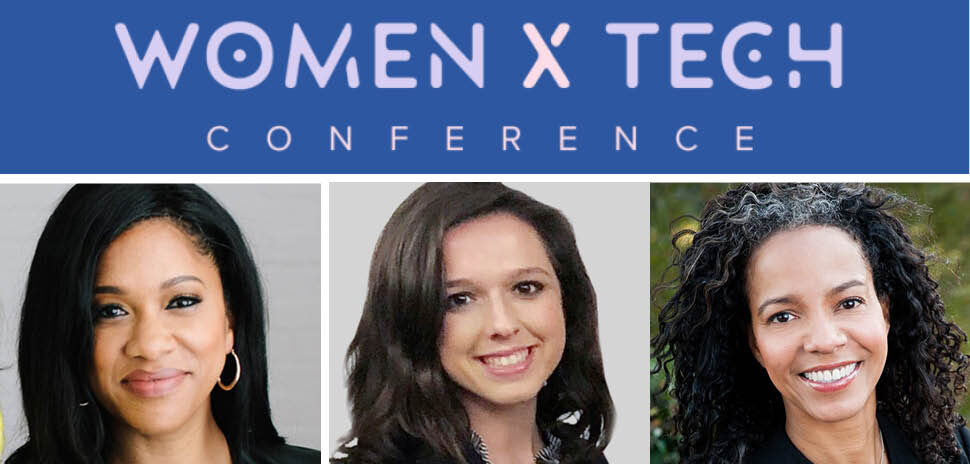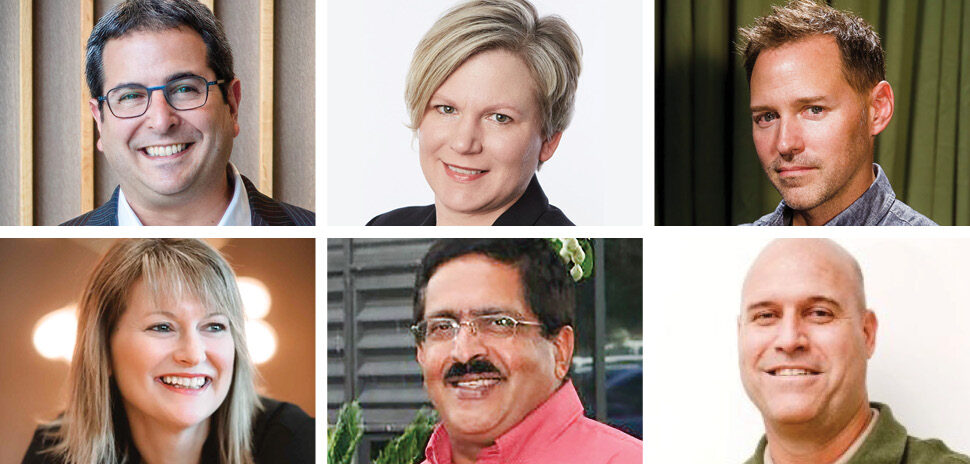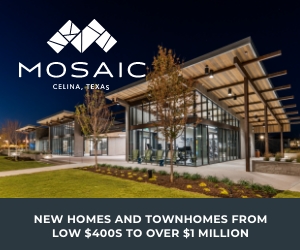![]() Kris Fitzgerald has spent decades working in the IT sector, but it’s the role he took in January that has been the most fun, he said.
Kris Fitzgerald has spent decades working in the IT sector, but it’s the role he took in January that has been the most fun, he said.
As NTT Data Services’ newest chief technology officer, Fitzgerald is helping the Plano division of the Japanese IT services provider be more intentional about its innovation and R&D efforts. Fitzgerald said he’s moved from “solving the day-to-day” toward “really changing the game.”
It’s a bit of a break from the charge given to NTT Data Services’ previous CTOs.
“They had co-CTOs, but this whole innovation, R&D, and driving transformation was not the charter before,” Fitzgerald said.
“We aren’t automating out the humans, we are automating the humans to be more effective.”
Kris Fitzgerald
NTT Data’s $3.1 billion acquisition of Dell Services last year, which it marked the “innoversary” of Wednesday, prompted the role’s makeover.
Fitzgerald said an IT executive these days needs to wear three hats — transaction, business enablement, and innovation.
“You need to have a methodology for doing [innovation] and understanding it within your company,” he said. “Not that it’s book-like methodology, but say ‘this is what we are going to do about it, this is how we are going to fund it, support it, do it, and so forth.’”
In his work, Fitzgerald is focused on six key areas: data and intelligence (a term he prefers instead of artificial intelligence), intelligent automation (what he said is “powering the fourth industrial revolution.”), then there’s also customer experience, Internet of Things, optimize IT, and cybersecurity.
At the core driving all of it is automation and data intelligence, he said.
Automation can be a trepidatious word for some people, but Fitzgerald said there’s no reason to be fearful of its impact in manufacturing, health care, and other industries.
“We can’t forget: we aren’t automating out the humans, we are automating the humans to be more effective,” Fitzgerald said. “The tagline I use is I want to take the robots out of humans so humans can do people work.”
Fitzgerald talked recently with Dallas Innovates about his new role as well as the impact of automation and other technology trends in the future of work. Answers have been edited for brevity and clarity.
You hear doomsday fears of “robots taking over the world.” What role do you think automation will play in the future and what role will humans play?
Like any former automated trend — you go back to farming being mechanized to the automobile being mechanized — you tend to see a bit of a dip first.
What you [then] have is it rises afterwards because we are driving more overall output. We need those jobs that are not just the hands for the next level.
There’s lots of manufacturing jobs that are here in the U.S. They are different jobs than were here 20 years ago. They are now the more engineering-oriented pieces, driving the machinery and robotics pieces because that manufacturing produces so much more. That production raises the overall economy, which means there’s more jobs to have with that.
It will be more advantageous to us because we’re going to have those engineering jobs that drive the automation and integrate it into our systems.
I think in some ways the dip will happen less here because so much of that low-end, call center type business was offshore to Mexico, China, Malaysia, and Panama years ago by big corporations.
It will be more advantageous to us because we’re going to have those engineering jobs that drive the automation and integrate it into our systems. It can be an uplift for us.
But, there’s always going to be that bit of a dip for us.
They won’t take over the world. I don’t believe in that.
As we are talking about the future of the workforce, what do you see as vital roles we will need?
I think the analytical role — the ability to understand data and to look for things and patterns.
Yeah we’re going to have all this machinery and AI, but there’s so much work for people to do that I think it’s a place that will be here for a long time. And, it’s not easily moved offshore because it’s integrated into the business.
Having people who can actually understand that connectivity and bring that solution to bare for the right business is going to be very important.
I think also the ability to connect the business to the solutions. We used to call them business analysts, but it’s more than that. The challenge is you have businesses that are saying, ‘I need to go do X and I’ve got these neat, shiny toys over here.’ It’s not a matter of connecting the dots easily. So, having people who can actually understand that connectivity and bring that solution to bare for the right business is going to be very important. They have to have a strong business anchor as well as a technology acumen.
Education is going to be an interesting factor over time. It’s going to change radically in how we educate, what we educated on, [and] how much is face to face versus virtual and remote. That whole space is going to be transformed to where the physical classroom will be less important.
Nurses aren’t going away. Even for all the things Watson does, it hasn’t replaced doctors yet.
Imagine having doctors providing care in other countries in their off hours in Chicago. We’ve got phenomenal people with health care skills — I would say almost unsurpassed of any country in the world. How do we bring that beyond this country or in remote areas [of the country]? How do you bring that telemedicine out there where people can live in the centers they enjoy and provide telemedicine?
To me, those are some skills that are out there and surrounding each one of those are the technical skills, the automation skills.
So, here’s that caregiver, but around them is an ecosystem that makes that caregiver able to interact with that person.
I also think the whole aspect of a hospital and a visit is going to change radically. There’s [an app-based] solution that we’re looking at that has reduced hospital business by as much as 77 percent.
We hear about how AI, blockchain, virtual reality, and other technologies are changing business. What do businesses need to be thinking about today, so they’re ahead of the curve?
The phrase I use is, ‘you need to think about things to not close any doors in your future.’ So, making decisions today that I won’t regret having made two years from now.
Decide what business you’re in and what your distinct competencies are. Focus your efforts and money on those and find partners for the rest.
I was working with a couple key customers in London a month ago and this was exactly the topic. They were asking, ‘what do I do?’ And, I was like, ‘don’t, you can’t worry about that.’ What you got to begin thinking about, though, is what are the patterns or trends that these are implying? More open architecture, more competent, more api-based. Don’t get yourself locked into something that would preclude you being able to take advantage of these as they come. No one can follow it.
Make sure you are also working with the right partners who have the wherewithal to follow those because they’re going to get there.
We work with customers that work with cognitive intelligence. I can’t do that myself, but that’s the space they’re in. I partner with them because as that evolves and grows faster, I can take advantage of what they’ve built and how that drives virtual agents.
Blockchain is very interesting. It’s a word you are hearing more and more, but I’m not sure besides bitcoin if everybody’s figured out what the meaning for it is. It’s one of the areas I plan to spend more time on in the next year.
I think there are some things that are out there that are interesting, but when you apply that reality lens, I don’t think we have them figured out yet.
VR/AR I jokingly think are more interesting for people who are video gamers than they are for those in the industry world, but I think we haven’t figured out what it is yet. I think there is going to be some things that make sense. There’s some things around maintenance of equipment where I could put on the VR glasses for example. And, on those glasses would be imposed what the equipment is supposed to look like and allow someone who is not fully trained on that to repair it.
I think the whole wearable piece — it’s coming. It’s going to be in health care and other places. It has that ability to provide you with information and provides you value. That whole personal assistant may be a wearable. You put a patch behind your ear that talks to you. The whole hitoe [smart clothing] is here now.
I think a lot of these are going to be fads and trends, but I do think [Internet of Things] has a place and will continue to have it. The data it provides is amazing.
Talk to me about the R&D efforts of NTT Data Services. What are the latest projects?
There’s a lot of work we are doing right now in the virtual agent type place. It’s not just IT work, but in the area of customer support, things like that.
One of the best examples is in health care. If you think about it, every year come January, we all get our new health care cards, all the new plans. Most of these health care payers have a hard time keeping up with the phone calls [of people asking] ‘Where’s my card? Where’s my nearest doctor?’
Providing that virtual agent to them means they can now answer that call immediately with that person and make them happy very quickly seven by 24. Doing things like that, they can provide a different customer experience and remove some of that pressure. To me that’s a game changer out there.
So, we are working with our customers to solve their problems then leveraging that beyond.
We are also looking in the area of data and intelligence. Getting away from the old model of ‘oh, I can solve that problem by bringing you 12 guys for 12 months.’ Into, can I build some solutions that solve problems then take them to five more customers?
So, we are working with our customers to solve their problems then leveraging that beyond. Taking some of those machine learning pieces out there as almost like a box as a service and helping customers drive that transformation is another one of my areas.So, we are working with our customers to solve their problems then leveraging that beyond.
I mentioned drones and the whole IoT. The hitoe [smart shirt] is one of them and some drone pilots. Where can drones be used in safety?
The other area really is focusing on medical outcomes because health care is so large to us. Whether that’s via data intelligence, IoT, or smart devices like hitoe — that’s a huge part of it.
If we can figure out a way to deliver medical care in a different way at a lower cost and a higher value, that helps all of us. That’s where I want to spend my R&D dollars.
What’s NTT Data’s innovation strategy? What advice would you have for other companies?
It’s a word used in a lot of different ways.
I put it in two buckets: I have what I might call deterministic innovation and opportunistic innovation.
Deterministic [innovation] looks at I have an idea of where I’m going. I’m going to innovate in the area of this. Not that I know all the answers, but it’s a focused effort and you work on it in a different way.
[With] opportunistic [innovation], I don’t know what might come up over here, but how do I get the best of to spark up?
Innovation is an investment. It’s not free.
We just finished doing a U.S. hackathon and the winners go to Barcelona in a couple weeks for our global hackathon. We gave them eight topical areas. Within that [we said] ‘you know our business, bring something to solve, get creative, and find something different to do.’ The winners actually get funded for their projects next year by Japan.
The fun thing is that we picked two [to move on from U.S. hackathon]. There were four other ones that I’m going to fund next year through R&D.
All the sudden I have more ideas. They’re the guys living it everyday. It’s not the old suggestion box.
Innovation is an investment. It’s not free. The worst thing you can do is have these discussions and then not act upon them.
I’ve seen companies do hackathons and various group things and then they do nothing about them. It’s like employee satisfaction surveys. They all tell you how bad something is then you never fix it.
What inspires you to stay in the IT space?
As long as I can make a difference and have fun. I’m past where this is my job. I’m past that point in my life.
If I can make a difference, transform, have fun, and impact customers — I’m all in.
If I can make a difference, transform, have fun, and impact customers — I’m all in.
I can go spend time with a customer and talk about that health care thing and watch a chief medical officer’s eyes [light up] and go, ‘that’s amazing.’ That’s not me, but what we bring to them to help them do that.
When you can bring solutions to bare for customers, drive something different, transform — that interests me.
READ MORE
Photos: Take a Virtual Look Inside NTT Data Services’ Client Experience Center
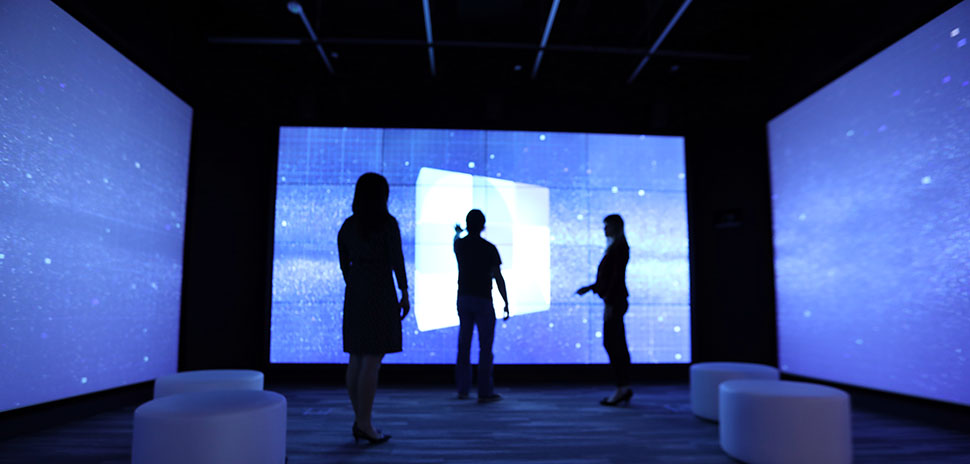
Dallas-based 900lbs of Creative helped NTT Data Services create a virtual Holodeck experience in the Collaboration Center at its Plano headquarters. [Photo courtesy of 900lbs of Creative]
![]()
Get on the list.
Sign up to keep your eye on what’s new and next in Dallas-Fort Worth, every day.
And, you’ll be the first to get the digital edition of our new Dallas Innovates magazine:
The annual edition publishes in January

